-
About
- About Listly
- Community & Support
- Howto
- Chrome Extension
- Bookmarklet
- WordPress Plugin
- Listly Premium
- Privacy
- Terms
- DMCA Copyright
- © 2010-2025 Boomy Labs

Listly by Umbrella Health Care Systems
Do you dread the winter months? Especially the effect that cold weather has on your skin? We understand. Dry, flaky, itchy and irritated skin is not a pleasant or comfortable feeling.
Winter months are harsh. If you live in a place that experiences extreme seasonal changes, this article is for you. Read on to find out how to deal with winter skin problems and prevent them.
https://www.umbrellamd.com/e-visit
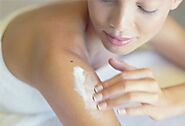
Is your skin feeling dry and tight -- even itchy or flaky? Any number of things can strip your skin of its protective oils. The result: Everything from chapped lips and itchy skin to cracked heels. Relief is in your grasp. Use this guide to see top cold-weather threats to your skin and what you can do about them.
https://www.umbrellamd.com/e-visit

No one is immune from dry lips in winter! Here’s how to cope: Drink plenty of water to stay hydrated and use a humidifier at home. Liberally apply beeswax or petroleum jelly to your lips. Put on lip balm or lipstick with sunscreen every time you go outside. Avoid being in the sun and wind too much. Don't lick your lips -- it may feel better briefly, but it only makes chapped lips worse.
https://www.umbrellamd.com/e-visit

Painful, cracked heels are a common skin condition, especially in winter. They are often caused by dry skin. Having calluses around the rim of the heel can complicate the problem. In some cases, dry cracked feet can lead to infection or make walking painful. Keep feet healthy by marinating cracked heels in petroleum jelly, covering them with plastic wrap, and putting on a pair of socks overnight. You should see improvement in a few days.
https://www.umbrellamd.com/e-visit
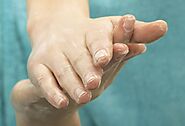
Your hands may be hard hit by the cold winter air. Washing your hands frequently helps eliminate cold and flu germs, but it also increases dryness. And unless you wear gloves every time you go out, hands may be more exposed to cold than other parts of your body. Give dry hands some extra TLC by using a glycerin-based moisturizer when you wake up, before you go to bed, and any time your hands feel dry throughout the day.
https://www.umbrellamd.com/e-visit
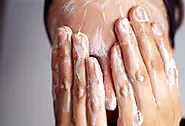
The same products that keep your face looking fresh in the spring and summer may cause skin problems during winter. Choose a gentle, super-fatted, fragrance-free soap -- bar or liquid -- for cleansing. Super-fatted means the soap is loaded with oils. Use a non-astringent toner, or just skip it altogether. If skin is dry, moisturizers that contain urea, dimethicone, glycerin, lanolin, or mineral oil can be good bets.
https://www.umbrellamd.com/e-visit
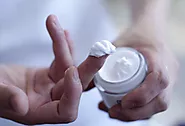
Should you change your moisturizer? Maybe. If you usually use a light lotion, try a heavier cream, at least on dry skin patches. Ointments -- like petroleum jelly -- have more oil than creams or lotions. That makes them more greasy, too, so they may be best for feet and body. Minimize the greasy feeling by using a very small amount and gently but thoroughly rubbing it into skin. Apply after a warm shower (more on that later).
https://www.umbrellamd.com/e-visit
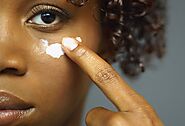
Humectants -- like urea, glycerin, hyaluronic acid, propylene glycol -- absorb water from the air. They are oil-free. Emollients -- like baby or mineral oil, plant oils (like jojoba oil), petroleum jelly, lanolin, stearic acid -- help replace oils in the skin. Many moisturizers contain a combination. You may want to skip some anti-aging moisturizers in winter. Those that contain retinoids can further irritate already dry, sensitive skin.
https://www.umbrellamd.com/e-visit
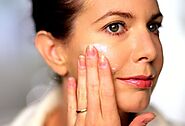
To get the most out of your moisturizer, exfoliate. Clearing away dead skin cells lets a moisturizer better penetrate dry skin. Exfoliate gently with a moisturizer that contains lactic acid or salicylic acid. Some exfoliants can be irritating, especially in winter, so try them on a small patch of skin first. If your skin is really dry or irritated, ask your doctor before starting a new skin care product or regimen.
https://www.umbrellamd.com/e-visit

A shower can add water to your skin -- as long as you keep it short and sweet. Long, hot showers can actually draw moisture from your skin. Appealing as a hot shower on a cold morning may be, lukewarm water is a better choice. It won’t strip away skin’s natural oils.
https://www.umbrellamd.com/e-visit

Right after you step out of the tub, pat skin dry and apply moisturizer to retain the water your skin just absorbed. A glycerin- or hyaluronic acid-based moisturizer can increase the amount of water that’s drawn into your skin. Baby oil (mineral oil) is also a good choice, because it prevents water from evaporating from your skin. Don't stop there: Liberally re-apply moisturizer throughout the day, especially to troublesome dry skin patches.
https://www.umbrellamd.com/e-visit

Umbrella Health Care Systems provide complete solution for health related problems.
https://www.umbrellamd.com/